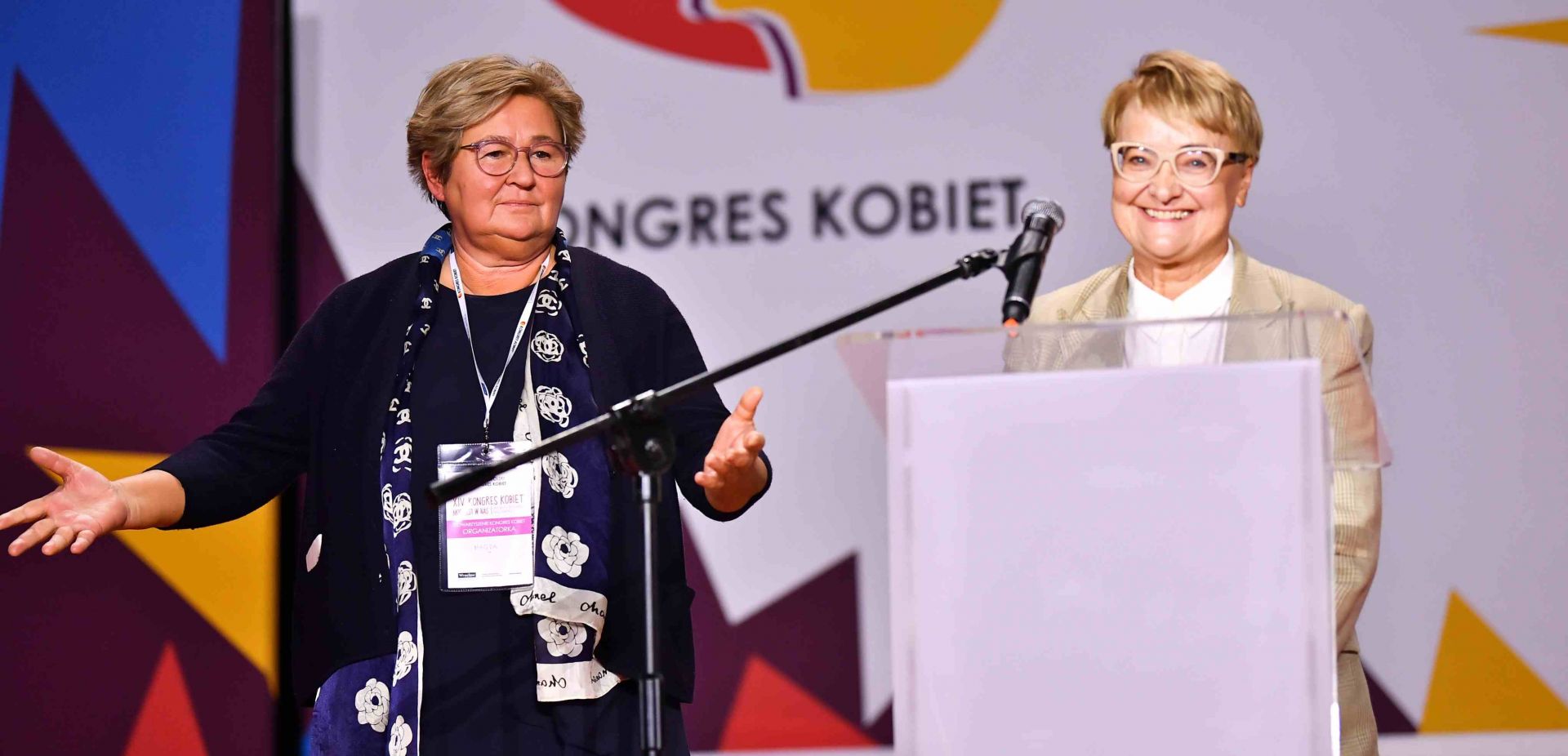A week ago, on 2 and 3 September, the 15th National Congress of Women (KK), advertised as a jubilee event, took place in Poznań. The slogan of the gathering was: "Women have a voice! Equality, education, future".
KK is an association founded in 2009. It was no coincidence that it was founded in that year - the idea was to point out that 20 years after the overthrow of communism, women still have to fight for their rights. The association has now been in existence for 15 years. On this occasion, its founders, Henryka Bochniarz, an economist, politician and businesswoman, and Magdalena Środa, a professor of philosophy, decided to review on the wyborcza.pl portal the state of the feminist movement in Poland, and at the same time the situation of women, and in their opinion it does not look good.
"I will insist that our Polish situation is exceptionally awful. 34 years after the democratic revolution, Polish women are deprived of the right to decide about their lives", Henryka Bochniarz laments.
So what went wrong?
Stab in the back
Both activists recall with nostalgia the time when their congress took off, uniting, they say, different communities. The grassroots work was not easy, but over time it became apparent that the women's workshops were producing results, even, or perhaps especially, for those from whom one would least expect it. Magdalena Środa recalls how they invited the Women's Choir to one of their congresses, which was still held in Warsaw, in the Palace of Culture. "It's a group that sings harsh songs: about the body, abortion, very anti-church. I remember we had a long discussion about whether the girls should perform and whether they would alienate women from villages and small towns, many of whom were in the Palace," she says. Meanwhile, it was the ladies from the provinces who had the best time then.
 SIGN UP TO OUR PAGE
SIGN UP TO OUR PAGE

The philosophy professor, known for her anticlerical rhetoric, has thus achieved quite a lot: she has managed to breathe new life into 'parochial' and traditionally conservative women. But what good is that, if the Government Plenipotentiary for Equal Status of Women and Men appoints such an Elżbieta Radziszewska, in the words of Prof. Środa, the "most churchly" woman in the position. And she recognises, among other things, that a Catholic school does not have to employ a lesbian as a teacher. In addition, her arguments (another stab in the back) are shared by the well-known lawyer Prof. Andrzej Zoll and half a dozen other opinion leaders who opposed the procedure to remove her as an authorised representative.
There were more such unpleasantnesses.
"We vote for feminists"

 SIGN UP TO OUR PAGE
SIGN UP TO OUR PAGE
 The philosophy professor, known for her anticlerical rhetoric, has thus achieved quite a lot: she has managed to breathe new life into 'parochial' and traditionally conservative women. But what good is that, if the Government Plenipotentiary for Equal Status of Women and Men appoints such an Elżbieta Radziszewska, in the words of Prof. Środa, the "most churchly" woman in the position. And she recognises, among other things, that a Catholic school does not have to employ a lesbian as a teacher. In addition, her arguments (another stab in the back) are shared by the well-known lawyer Prof. Andrzej Zoll and half a dozen other opinion leaders who opposed the procedure to remove her as an authorised representative.
The philosophy professor, known for her anticlerical rhetoric, has thus achieved quite a lot: she has managed to breathe new life into 'parochial' and traditionally conservative women. But what good is that, if the Government Plenipotentiary for Equal Status of Women and Men appoints such an Elżbieta Radziszewska, in the words of Prof. Środa, the "most churchly" woman in the position. And she recognises, among other things, that a Catholic school does not have to employ a lesbian as a teacher. In addition, her arguments (another stab in the back) are shared by the well-known lawyer Prof. Andrzej Zoll and half a dozen other opinion leaders who opposed the procedure to remove her as an authorised representative.





